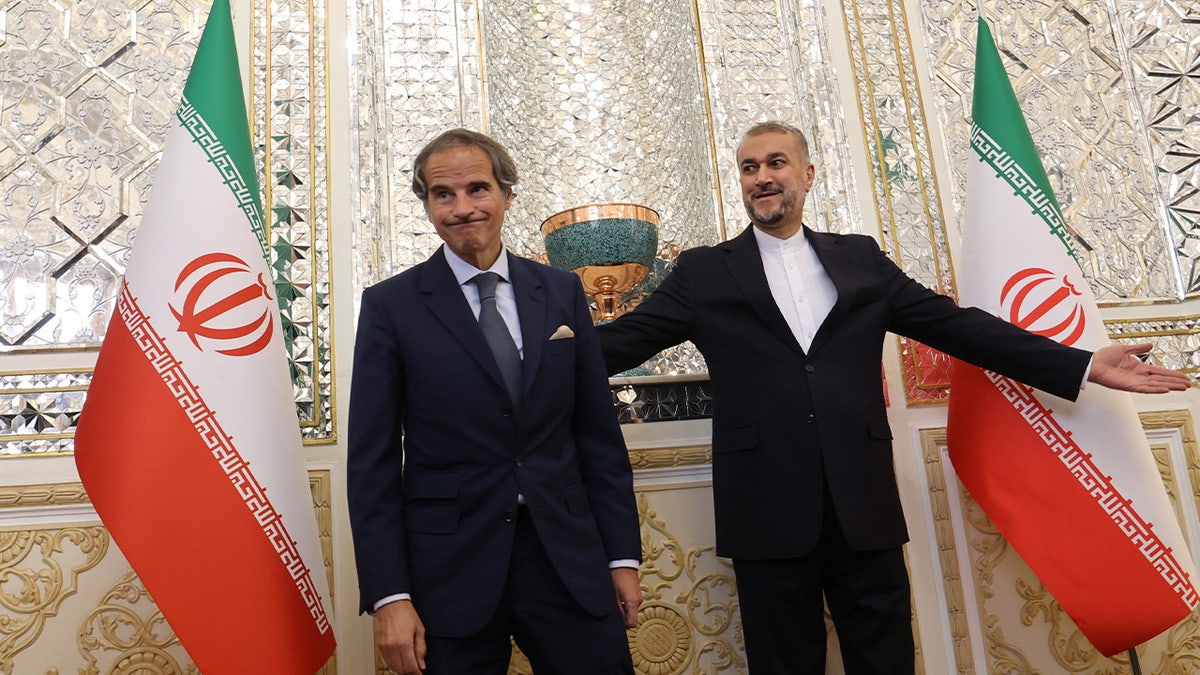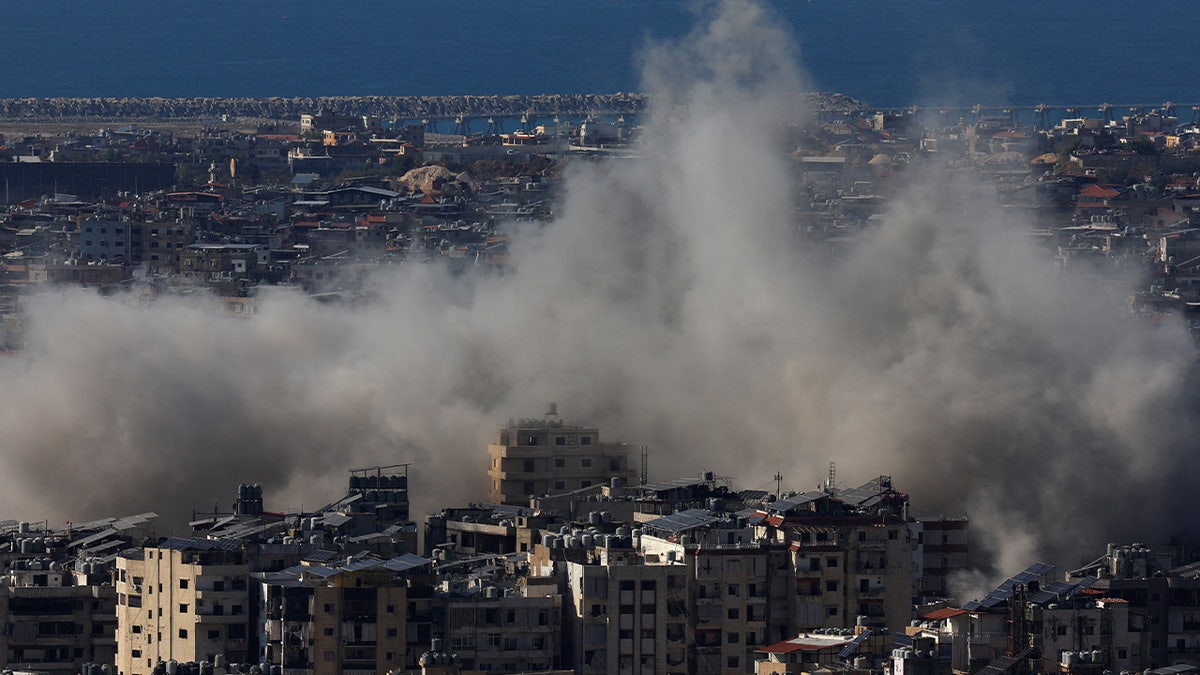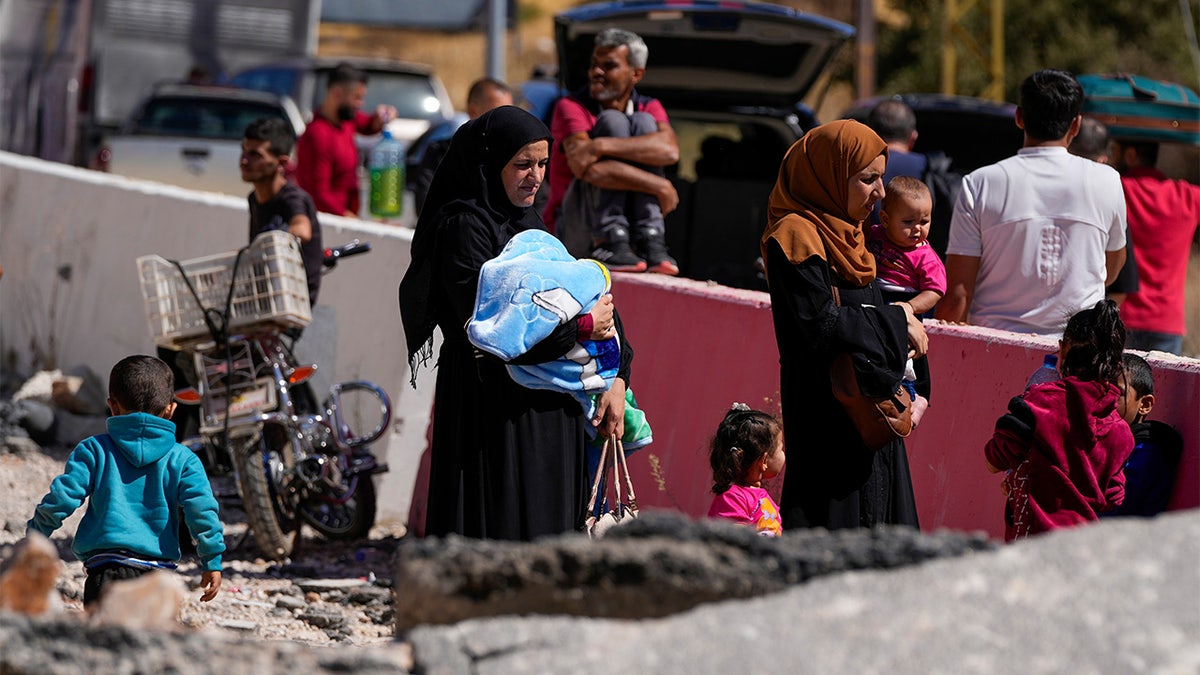Join Fox News for access to this content
Plus special access to select articles and other premium content with your account – free of charge.
By entering your email and pushing continue, you are agreeing to Fox News’ Terms of Use and Privacy Policy, which includes our Notice of Financial Incentive.
Please enter a valid email address.
Tensions between Iran and Israel remain heightened as Tehran’s military heads on Thursday once again pledged a crushing response to Jerusalem’s strikes last month, and the U.N.’s atomic watchdog is scrambling to prevent a nuclear escalation.
Director General of the International Atomic Energy Agency Rafael Grossi traveled to Iran this week to hold high level meetings with Iranian officials in a move to hold Tehran accountable for prior nuclear safeguarding pledges and to get clarity on where Iran’s nuclear program stands.
However, even as Tehran continues to develop its nuclear program despite international attempts to stall it, Grossi also issued a warning message to Israel, stating clearly that Iran’s “nuclear installations should not be attacked.”

International Atomic Energy Agency Director General Rafael Grossi, left, meets with Iran’s Foreign Minister Hossein Amir-Abdollahian in Tehran, Iran, on May 6, 2024. (Majid Asgaripour/WANA (West Asia News Agency) via REUTERS)
UN WATCHDOG WARNS TIME TO ‘MANEUVER’ ON IRAN’S NUCLEAR PROGRAM IS SHRINKING: REPORT
Grossi’s comments came during a news conference Thursday and just three days after Israeli Defense Minister Israel Katz on Monday said that Iran was “more exposed than ever [for] strikes on its nuclear facilities.”
“We have the opportunity to achieve our most important goal – to thwart and eliminate the existential threat to the State of Israel,” he added.
The White House has repeatedly warned Israel to not go after Iran’s nuclear sites, though as the Biden administration prepares to leave come January, when President-elect Donald Trump retakes the Oval Office, the U.S. official stance on Israeli strike options could change.
Grossi’s trip to Iran comes at a pivotal time for geopolitics as the U.S. under the Trump administration is expected to take a more hardline approach against Iran, though it remains unclear how Washington’s policies in the region could change.

The Foundation for Defense of Democracies has analyzed where Iran’s nuclear infrastructure is located as Israel mulls retaliatory attack. (Image provided by the Foundation for Defense of Democracies)
Iran appears undeterred by Trump’s or Israel’s threats, and its top government and military officials have repeatedly said Tehran will issue a retaliatory blow following Israel’s attacks in late October.
IRAN THREATENS TO USE MORE POWERFUL WARHEADS AGAINST ISRAEL IN NEXT ATTACK: REPORT
In a Thursday meeting with family members of Major Sajjad Mansouri – who was reportedly killed during the Oct. 26 Israeli strikes – Commander-in-Chief of the Iranian Army Major General Seyyed Abdolrahim Mousavi promised a “crushing” blow to Israel.
“We will determine the time and manner of our response. There will be no hesitation when the time comes, and our reply will surely be crushing,” he said according to Tehran-based news outlet Iran Front Page News, echoing threats issued by Iran’s supreme leader Ayatollah Ali Khamenei earlier this month when he said Tehran would issue a “crushing response.”
Similarly, Deputy Commander of the Iranian Revolutionary Guard Ali Fadavi on Thursday said, “The entire world will bear witness as the complete downfall of the Zionist regime fulfills the triumph of righteousness over falsehood.”
“This is a divine promise: the party of God shall prevail, and the party of evil shall face defeat,” he added, according to the Iran International news outlet.

Smoke billows over Beirut’s southern suburbs after an Israeli strike amid the ongoing hostilities between Hezbollah and Israeli forces, as seen from Baabda, Lebanon, on Nov. 14, 2024. (REUTERS/Thaier Al-Sudani)
IRAN-LINKED ATTACKS AGAINST US SKYROCKET BY 600% SINCE OCT 2023 HAMAS ATTACK ON ISRAEL: REPORT
Israel has ramped up its attacks against Iran-backed proxies like Hezbollah in Lebanon and the Islamic Jihad terrorist organization in Syria.
The Israeli Defense Forces (IDF) struck militant positions in the capital cities of Beirut and Damascus on Thursday, hitting terrorist infrastructure sites and command centers, according to the IDF.
The Lebanese Health Ministry said six people had been killed and 15 wounded in the Israeli airstrike that hit a southern Beirut apartment building, reported Haaretz.
Residents in Beirut were allegedly advised to evacuate ahead of the strikes, though it is unclear how many of the causalities were terrorists or civilians.
Another 15 were reportedly killed in Damascus while 16 more were injured in the strikes.

People carry their luggage as they cross into Syria on foot, through a crater caused by Israeli airstrikes aiming to block the Beirut-Damascus highway at the Masnaa crossing, in the eastern Bekaa Valley, Lebanon, on Saturday, Oct. 5, 2024. (AP Photo/Hassan Ammar, File)
CLICK HERE TO GET THE FOX NEWS APP
Senior Advisor to Khamenei Ali Larijani reportedly visited Damascus on Thursday and is scheduled to head to Lebanon as the head of a high-ranking delegation, according to an Iranian foreign ministry spokesperson, reported state-owned Islamic Republic News Agency.
The spokesperson reportedly said Larijani “would meet with high-ranking Syrian officials, including the prime minister and the speaker of the Lebanese parliament, to discuss the most recent development of the region.”
It remains unclear if he was in Damascus or Beirut at the time of the strikes.
